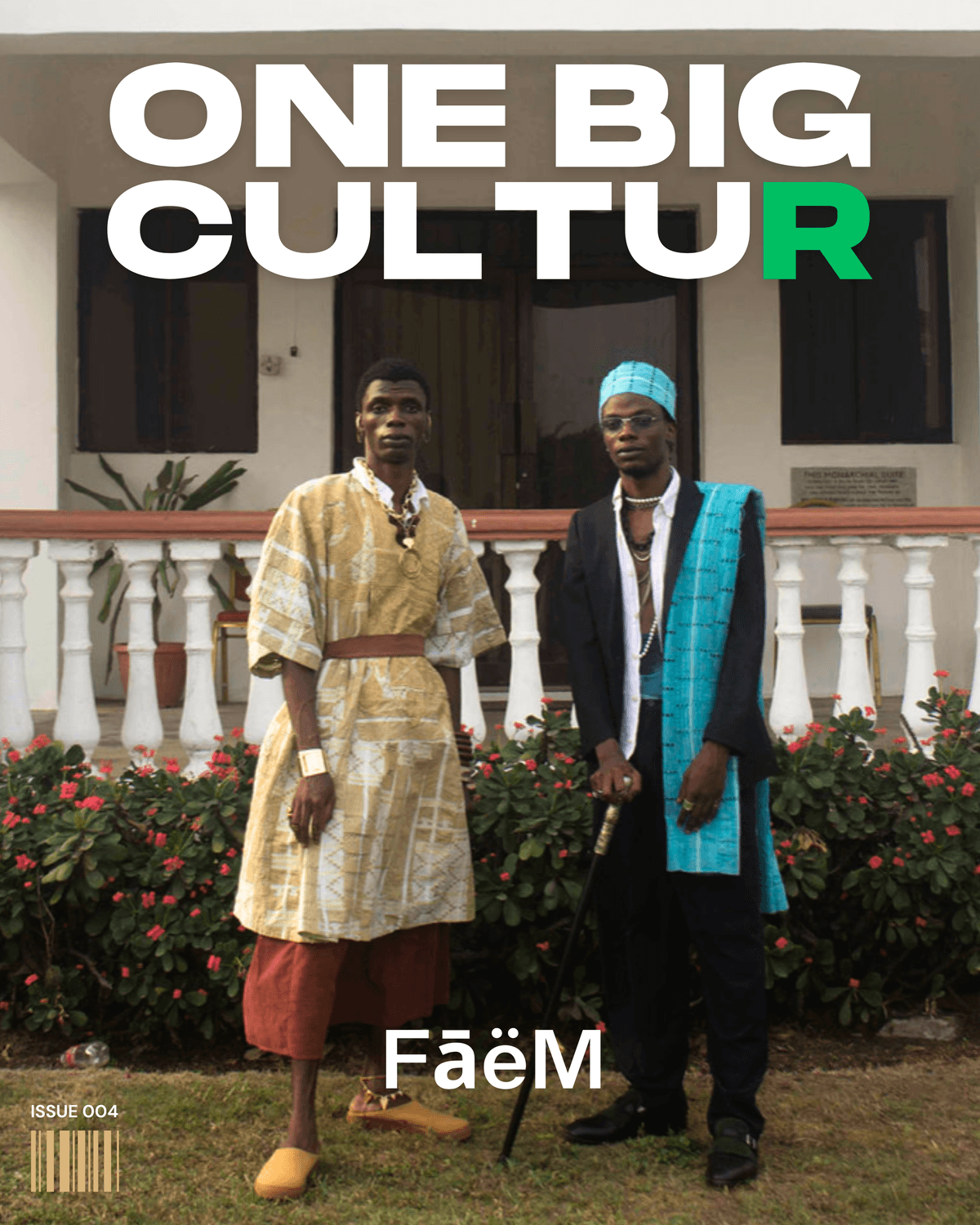
FĀËM, the innovative brother duo who are not just participating in Lagos' electronic music scene they're shaping it. With their distinctive Afro-electronic fusion sound, FĀËM is capturing attention and creating a unique sonic experience. We'll delve into their creative partnership, the evolution of their captivating sound, and their ambitious vision that extends far beyond the local landscape.
In a city where Afrobeats dominates airwaves and club nights, FĀËM the Lagos-based brother duo are building an entirely new frequency. Seamlessly blending house, electronic, and Afro-dance music into a sound that’s unmistakably their own, FAME is not just riding the wave of Africa’s music explosion they’re crafting a lane that didn’t exist before. Their Afro-electronic fusion is more than just music; it’s a cultural bridge connecting Nigerian roots to global undergrounds.
What makes their story singular is the symbiotic bond they share. As biological brothers and creative partners, FĀËM's origin is experimentation, discipline, and an intuitive understanding of sound that was forged in small bedrooms, YouTube deep-dives, and school studios. One brother began DJing in university to cope with uncertainty; the other learned from watching, tinkering with gear, and letting curiosity lead the way. Together, they’ve evolved into a joint force that produces, remixes, and performs music that challenges Lagos’ sonic norms.
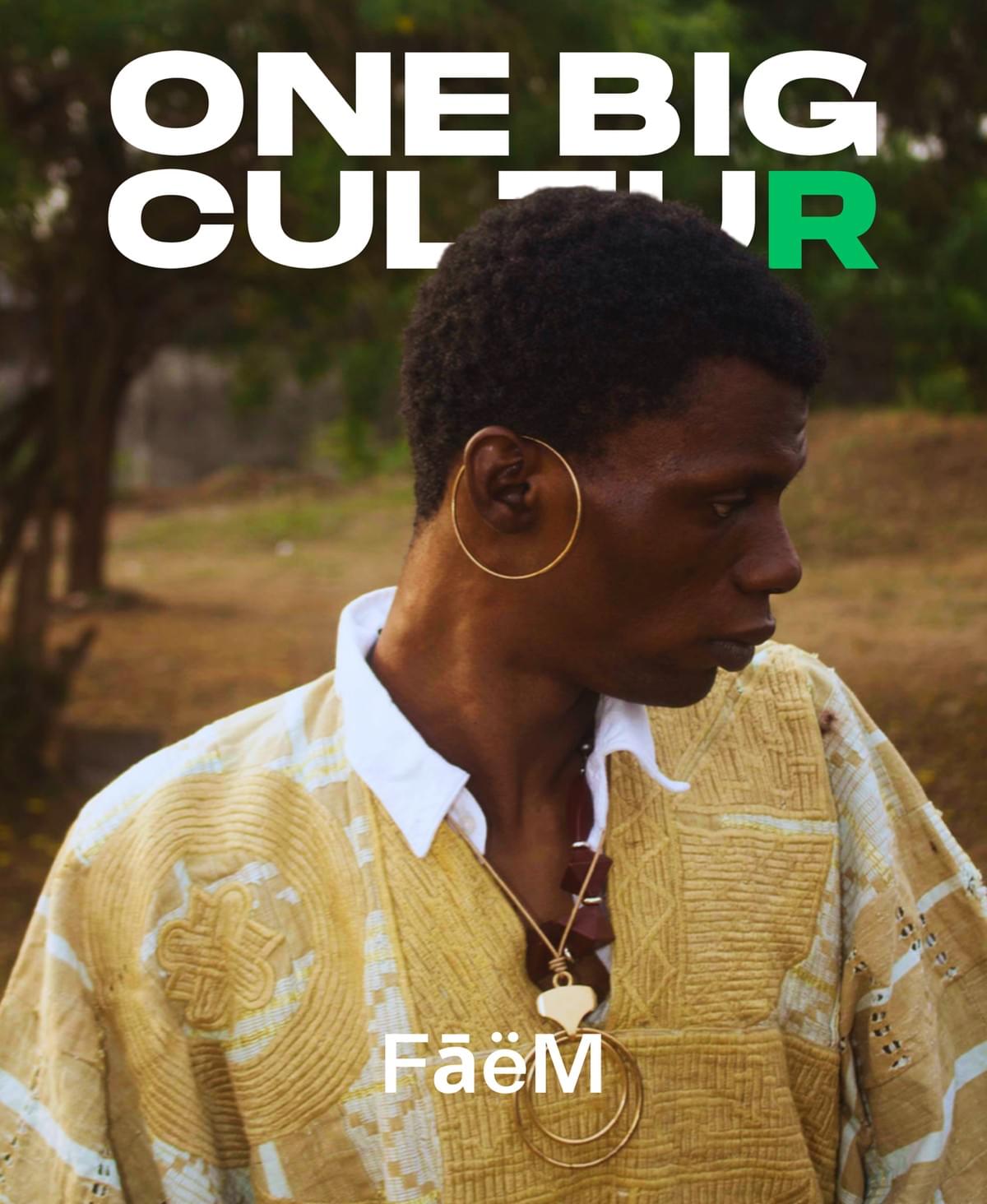
Reynold: As brothers, what inspired both of you to pursue a career in music, and how did you decide to focus on EDM, Afro-Dance Music (ADM), and House?
Fāëm: I started focusing on music during my final year of studying architecture. At that point, I was uncertain about the future after graduation, so I wasn't in a good place mentally. I had always been a fan of electronic music and enjoyed listening to songs that weren't common around me. So, we started with electronic music from the beginning, trying to explore all the possibilities. I looked at the artists I was listening to at that time, like David Guetta, Calvin Harris, and other DJ producers. We began DJing. I started DJing in school, playing electronic music and promoting the idea that this was something people around me would enjoy. It was later on that my younger brother decided to join me. Two or three years after DJing, we started to actually produce our own music.
The Younger Brother: So, that's how we started. Yeah. We used to listen to a lot of mixes online, specifically on YouTube, around the time of Tomorrowland in Belgium. That's how I got into DJing and then producing. At that point, I wasn't DJing; it was just him. But I enjoyed watching those videos. Then one day, early on after we got back home, I thought, "Let me just try my hand at this." I started watching a lot of tutorials, trying to figure things out because we had one very tiny controller that he was using, and I would pick it up when he wasn't using it. I enjoyed fiddling with it and watching tutorials. It was more of a fun thing to do at that time, not thinking too much about it. Then, at some point, it just became more serious.
Reynold: How do you collaborate as brothers when creating your new tracks? Do you have specific roles in the music creation process?
Fāëm: We do have roles that evolved naturally based on our strengths because we've been working together from the beginning. Our working relationship started with us learning together and figuring things out as we went. During this period, we learned that one of us was better in certain aspects. So, when it comes to creating music, I'm the one who handles the core elements and comes up with initial ideas, while my brother handles the compositional structure of the song. That's how we started to focus on our specializations over time. Although my younger brother is a twin, we still work better together. Ever since we were younger, we've always been tasked with doing things together, which strengthened our bond, hence why we collaborate so well.
Reynold: How would you describe your unique sound, and what sets FAME apart from other DJ duos in the industry?
Fāëm: There's a common misconception that we are famous because our Instagram handle is @_faemous, but our name is actually FĀËM. It's a good confusion, I guess. But to answer your question about the uniqueness of our sound, I think it's something that has built over time. As my brother said earlier, our journey into music was more like a discovery. We kept finding new things, and that continuously evolved our sound. We still find new stuff, and our sound keeps evolving. We find things, test them out, and choose what resonates, adding it to what we already have.
The way our sound evolved from back in 2017 when I started DJing, I realized that my experience of electronic music was playing for people unfamiliar with it. So, we figured out that we needed to create a bridge between existing electronic music and what the people around us could understand. Over time, we've refined this into an art form of remixes, mashups, and generally tweaking electronic music because we understand music on a fundamental level.
We can create a perspective that works in settings where people don't necessarily understand what's going on. We've created those bridges. So, that's what FĀËM brings to the table. We've done the work, we've done the assignment, and we've figured out how to connect with this community. But to put it in basic terms, our sound is basically Afro-electronic fusion the African sound mixed with the spice of electronic music.
Reynold: What are the biggest challenges and advantages of working together as brothers in such a competitive industry?
Fāëm: Advantages... It's almost like we sometimes have this telepathic connection where we already know what the other is thinking. Decision-making is often very easy. Because we listen to music together, we know what we want and what we like. We kind of know each other's preferences. So, I guess being brothers makes it easier. That's a major advantage because working with someone you don't have that close connection with can be different. It gives us a general understanding of each other's energy. So, a lot of things that need to be done for the brand come about much easier. Also, it's easy to bounce ideas off someone who understands the context of what you're working on. If I'm working on a song and not really liking how it's going, I have someone right there who can let me know if I'm on the right track – instant gratification. You can easily get that feedback because there's a shared understanding. When you're making music, you're immersed in it, so it's easy to get tunnel vision and not really be able to hear what you're doing or properly assess it.
As for disadvantages, I would say our parents. Having one son say he wants to do music is one thing, but for them, they envisioned us on a traditional educational track leading to typical workforce careers. We decided to be creatives and take on this whole other path. It's been interesting because they have very traditional Nigerian parental views with the same biases and expectations. So, we experience a bit of friction.
I guess that's one of the major disadvantages of being brothers in this context because naturally, I probably wouldn't have experienced that level of parental concern if we weren't siblings working on this together. It seems quite counterintuitive, but that's how it is with Nigerian parents, and quite dramatic.
Another disadvantage, though I don't think this one is specifically about us being brothers, is just the challenge of being a duo in this kind of economy. People don't always recognize that there are two acts within one. So, whenever we're trying to get payments and bookings, it's often a hassle to make them understand that they're not paying for one person; they're paying for two artists under one act. It's like if the Wu-Tang Clan is getting booked, you're not paying for one person; you're paying for the entire clan. The clan is two people in our case.
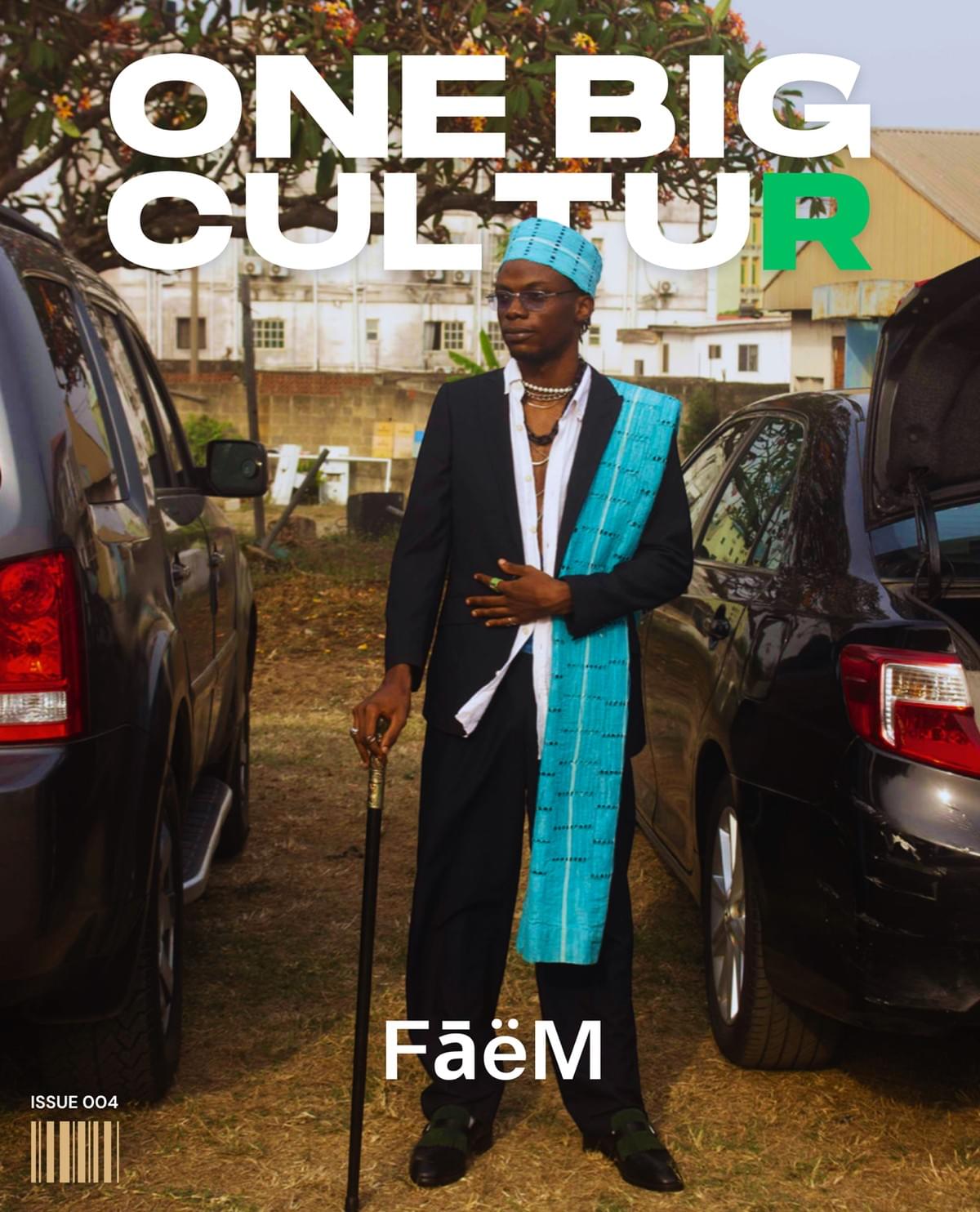
Reynold: How do you approach your live sets to create an unforgettable experience for your audience? Do you have a favorite performance or venue so far?
Fāëm: Right now, Sweat It Out stands out for that last question. They give us the room for expression that no one else has quite offered. And the reception from the crowd itself has been amazing. The thing about performing on a stage like that is that you're not performing for complete novices who don't understand the sound. But in a way, because we've done all this work to simplify and make our electronic music relatable, it's a very fertile ground for our performance to flourish. Exactly. When we're preparing for our sets, every set is different. We're always putting in a lot of work, and we never really talk about it explicitly, but once we get confirmation for a gig, my brother and I instantly start actively listening and looking for ways to create an experience unique to that performance.
We almost never play the same things in consecutive performances; it's always different. A major way we prepare is by trying to create something unique for every performance. We always make a new song, or at least like four new mashups that are fresh. That's one thing we've realized: if we ourselves are having fun, like we're having a creative "quiz," I might spend Tuesday working on a song I created for my set.
And you get to play that song for maybe four minutes because the song is going to be around that length. So yeah, those four minutes that you're playing that song, all the effort you put in kind of narrows down to that moment. And it's such a beautiful moment when you've done all this work, and then there's that release, and you watch the crowd react to the music. It's a beautiful thing, and it's one of the things I really look forward to nowadays. After experiencing that multiple times, I feel like that's a beautiful kind of science happening with our performances. And that's where we're at with that. Also, you talked about live performance. So yeah, we have two different types of performances we do: the DJ hybrid sets and the actual live performance. We've only ever done the live performance once in a public space, and that was in September, I think.
That took a lot of work because in that setting, we're working with live instrumentalists, percussionists, and vocalists, performing songs solely produced by us – a 100% FĀËM original performance. That one was really surreal because when we're doing hybrid sets, we're playing a mixture of our songs and other people's songs, maybe mashing up a song with an electronic music track, that kind of vibe. But in this case, everything the crowd was hearing was coming right from our laptop, alongside the live artists. It was a very intimate experience, really nice, and we intend to do more of those performances in the future because it was my favorite performance we've ever done. It was the initial intention when we started making music – just that kind of moment, sharing the music raw with people. And it was a very good experience.
Reynold: That's actually so elaborate and dope. I can imagine. I literally can't wait to watch one of your sets live. I think you have something coming up soon. Do you have a set coming soon?
Fāëm: Yeah, we are playing this Sunday. So we have something on this Sunday. And then there's Mainlanders. We are residents there. It's this party thing that we started like a movement, one of the founding members. So, we started this with our guys Codename and Stylish and a couple of other friends. Stylish is a photographer, King is a DJ, and they are twins, actually. So they started Mainlanders, and they invited us to come and play for them once. We played, and it was really nice because the thing about house music in Lagos is that most of the parties are on the island.
Everything happens on the island. So, they had this idea that they could bring what everyone is doing on the island to the mainland. Doing this on the mainland is a bit more challenging because of finding suitable spaces that can accommodate the event, considering safety and other factors, especially since there's a significant queer community and others who might need extra protection at outdoor events. So, there are a lot of factors we need to consider when working on the mainland. Most people don't do events there.
So, we started Mainlanders around the end of 2022, and we became their resident DJs. So, every time there's a Mainlanders event, we're most likely to perform. We're having our anniversary show in March, on March 8th, I think. You should actually come down. That's where you'll see it. It usually happens in Yaba, sometimes they bring it to Ikeja, but this next one is good to hear about. Oh man, that's something to look forward to.
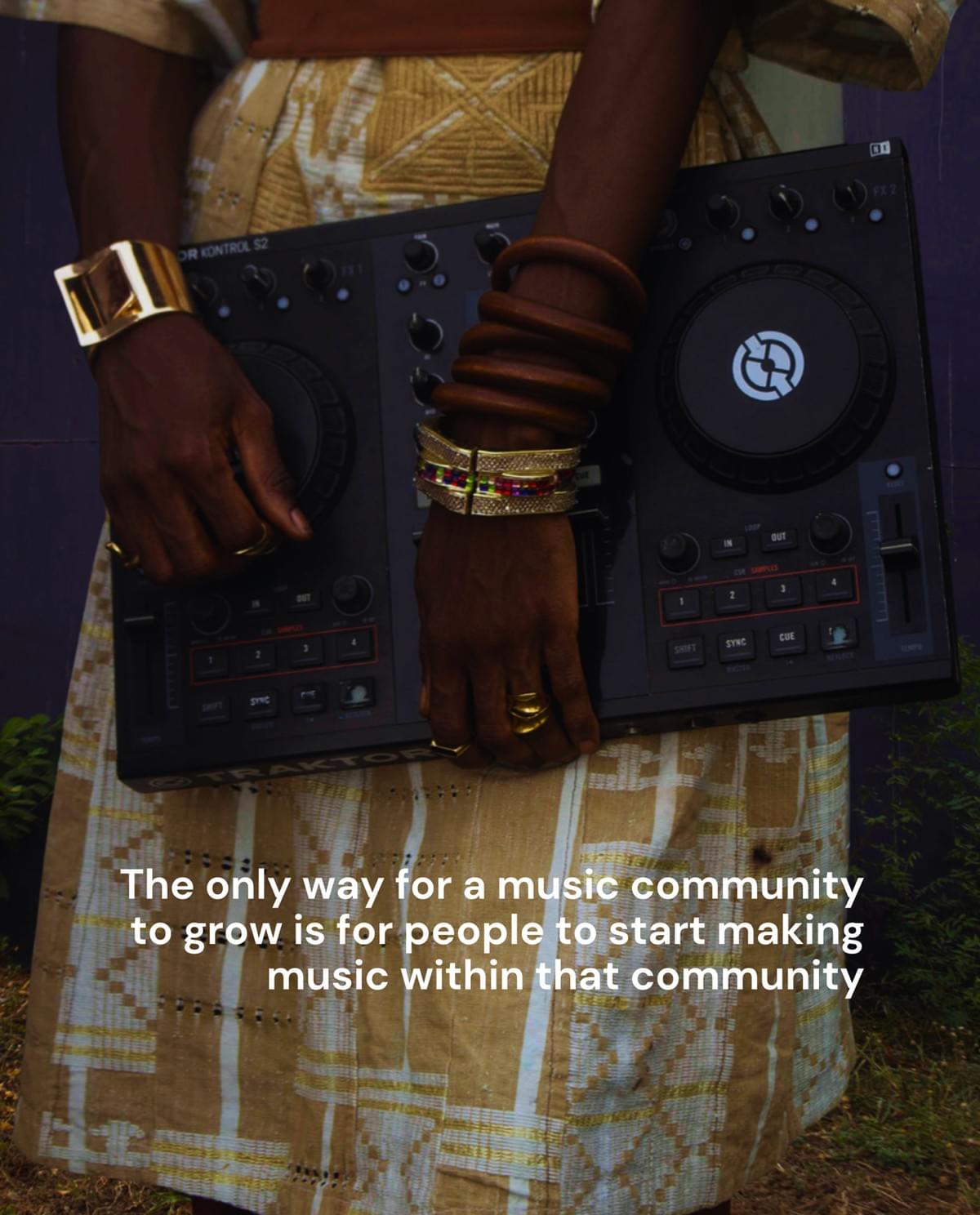
Reynold: So, how do you see the EDM and house music scene evolving in Nigeria, and where do you think FAME fits into that future?
Fāëm: So, the scene in Lagos, right, the scene in Nigeria... I mean, the current scene, because we came to Lagos to connect with a pre-existing community. A lot of the work we were doing at the time was elsewhere, where communities were non-existent or very small. But communities already existed in Lagos. We came to Lagos about two and a half years ago, and in that span of time, the number of electronic music events has more than tripled.
The concept of electronic music is growing in the country at an alarming rate. I feel like it's going to probably even triple again this year because, from the look of things, things are really taking off. What that means for talent like us is that it's going to lead to more reception of the sound in the general public because that's the thing: for a lot of people to actually accept the sound, they have to experience it. More music venues are popping up that people are using to listen to electronic music. It's going to lead to a proper culture of listening to electronic music, and that growth is already apparent and happening. But regarding why I asked if you meant Nigeria, even on the global scene, we kind of view ourselves as a brand that isn't limited to the Nigerian scene.
We are working towards a global reach because that's our motto: performing our music in every major city in the world. That's a major goal we have. So, as a global brand, we are currently in Lagos in what you might call an incubation phase. And also, I feel like building a strong foundation of a following is very important because that's going to be the base that will expand into the wider world, doing something cultural, which has always been a major part of why we actually started to listen to music.
I don't want to ramble too much, but we built our live show last year out of songs from the '70s and '80s. So, we are very focused on the historical exploration of sound and working with songs from Nigerian history. We have always been trying to tie in the culture with the Nigerian sound. There were people in the past, mostly in Lagos, who created sounds akin to electronic music, some even making it around the same time that the founding fathers of electronic music were coming up with their own versions. All these things were already happening, and they kind of fell into obscurity. So, people like us started to find out about these older artists and legends, and we started to find ways to connect with their stories. So, that's what FĀËM is as a brand: we need to project all these things into the world. We don't want just Nigerians to listen; we want the entire world to see all this special music that is going on.
It's a different part of the conversation that Afrobeats isn't really touching. And that's where we are at. I think it's even Africa in general. Yes, Africa, because if I'm being honest, last year we drew a lot more from sub-Saharan Africa, and the music in Africa is so rich. Just looking at Nigeria alone, I was already getting overwhelmed. But when you start to look at other countries – Kenya, Mali, Ghana that is what we stand for.
I think I have one little thing to add. For the growth of the community, the only way for a music community to grow is for people to start making music within that community. The way Amapiano blew up from South Africa was because there were producers making that sound and propagating it outside of the country. So, if you're going to propagate the sound from Lagos, it's going to come from producers from Lagos. We are always very keen on this. Most people in Lagos who are DJing don't really make the music; they just go online, get the music, and play it, creating their setlists but not actually producing. A significant cultural moment last year was that a lot of people started to realize that we needed more music made in Lagos. So yeah, that's a gap that we as FĀËM easily fill. But we are trying to encourage even more people because we can't even fill it on our own. The movement starts when it becomes a movement. When you can convince someone that they themselves can stop what they're doing and actually start producing music and that it can be profitable... We've been pushing all our producer-DJ friends to start producing their own music because if you can select music and...
Reynold: What advice would you give to aspiring DJs and producers who want to break into the EDM scene? I think you just mentioned that.
Fāëm: Yeah, I think that kind of answered the question. Well, what other advice would I give?. I actually unconsciously accepted to mentor someone recently. I didn't use the word "mentor," but I told the person, because I realized that if I were in their position, what would I want? Within the limits of my own possibilities, what could I do? I'd want someone to answer questions, assist with workshops, things like that.
Those are the ways I can help. A lot of people get lost in the craziness of possibilities. I feel like I can help narrow it down and make people understand that it's very simple. Even though there are all these other sides, I'm just trying to get them to focus on the things that matter, which is the simplest part of it: giving people an experience that they would remember. You don't need to know all the billion things that exist in music for you to be able to do that. In fact, there are tools I keep pushing AI tools and all these things. They make it simple. But the intention, the vibe you bring into the room is still you. So you don't need to know all the mathematics of music; you don't have to. And over time you will grow, and all those things will expand and come into you. It's not like... And a lot of people have... I feel like it's going to... that's what's going to happen. A lot more people are going to actually figure this out over time, and that's all the more better for the culture. That's what we are here for.
These brothers are not only crafting compelling music with their Afro-electronic fusion, but they are also actively contributing to the growth of the electronic music community in Lagos and setting their sights on a global stage. Their dedication to their unique sound and their collaborative spirit make them a duo to watch.
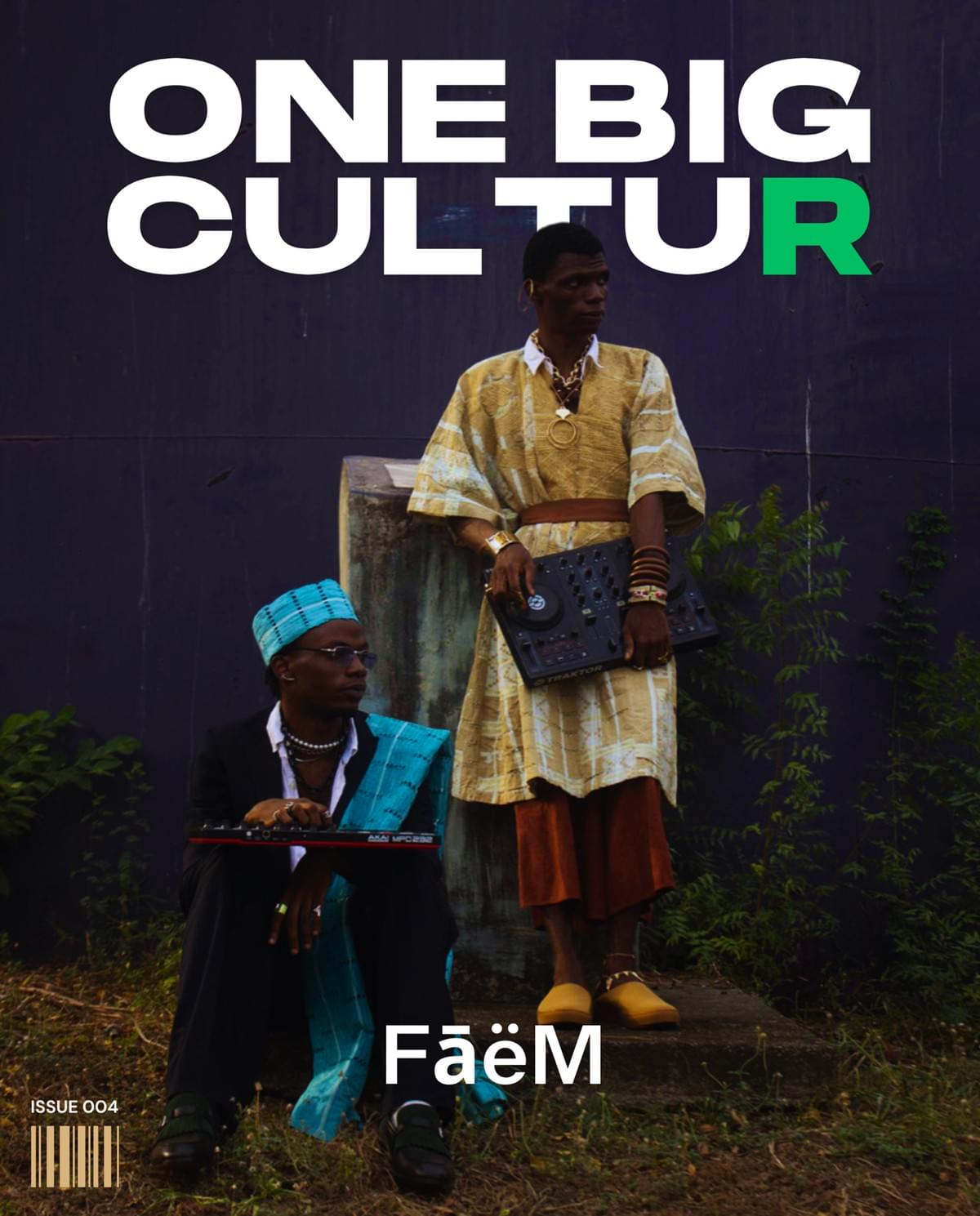
FAME has illuminated the drive and creativity fueling their success.
Editor in chief / Interviewed by Reynolds mark
Project lead Oliwia Klimzcak
Head of design Tosan uche
Assitant editor in chief Walter okosie
Creative direction & Styling by Mofolasayo
Footwear by Sir jhoe
Photographed by Caston-Dada Olamilekun
Site manager Darey Obey
